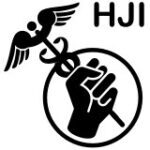Our mission is to create more just and equitable healthcare, where people who are medically underserved, particularly BIPOC individuals, can achieve optimal health and well-being.
The Problem
Households with incomes below the poverty level face significant barriers in accessing quality healthcare due to systemic and structural inequities.
These barriers include discrimination, denial of care, language barriers, medical debt, and lack of access to insurance or other resources.
It disproportionately affects people of color, resulting in poorer health outcomes, higher healthcare costs, and greater healthcare disparities. This has a significant impact on the physical and mental health of people of color and contributes to the broader health disparities in our society.
The Solution
HJI provides free or low-cost legal assistance to medically underserved people, particularly BIPOC individuals, who are facing legal barriers within healthcare.
We work towards addressing the legal and systemic barriers that contribute to healthcare disparities. We achieve this through litigation, mediation, and policy change.
We also partner with healthcare providers, community organizations, and advocacy groups to promote health equity and ensure that everyone has access to quality, affordable healthcare.
Litigation
Litigation typically involves legal action taken by individuals or groups who believe they have been wronged or harmed due to negligence, malpractice, discrimination, or other unjust actions within the healthcare system. This legal process allows aggrieved parties to seek compensation for damages, hold responsible parties accountable, and pursue justice for the harm they have suffered.
Dispute Resolution
Dispute resolution refers to the methods and processes used to address conflicts, grievances, or claims of wrongdoing within the healthcare system without resorting to litigation. These methods aim to resolve issues through negotiation, mediation, arbitration, or other alternative means outside of formal court proceedings.
Policy Work
Policy changes in response to medical injustice play a crucial role in promoting fairness, accountability, and patient-centered care within the healthcare system. By addressing systemic issues and implementing reforms aimed at preventing future injustices, these changes contribute to building a more just and equitable healthcare system for all individuals.
Our Board

Natalie Moulton-Levy, MD
Natalie Moulton-Levy, M.D., HJI's founder, is a board-certified physician with 20 years of experience. During her years of practice, Dr. Moulton-Levy has experienced inequities in medicine first hand. In the early days of the COVID-19 pandemic, she volunteered to work at a hospital caring for COVID patients, which shed new light on the realities of medical inequities. Her medical practice before COVID allowed her to engage in problems of inequity on an individual-patient basis, however, she reached a place in her career in which she was ready to address these issues on a more systemic scale. As such, she made the decision to go to law school. Because of the structural dimension of medical inequity, a law degree enables her to take an intersectional approach to addressing the legal aspects of the healthcare system in the United States to better advocate for those whose voices are not being heard for a variety of reasons. Thus, she started HJI, a public health and civil rights law nonprofit, which is a medical-legal, community-driven initiative advocating for people experiencing poverty, particularly BIPOC individuals, in receiving the physical, mental, and gender-affirming health care that they deserve.

Corey Nelson, MD
Corey Nelson, MD is a board-certified anesthesiologist in Los Angeles, California. He is affiliated with Los Angeles General Medical Center, a county-funded academic facility dedicated to serving medically underserved populations, and University of California Irvine Medical Center. He has also provided pro bono care internationally in Nigeria and India.
